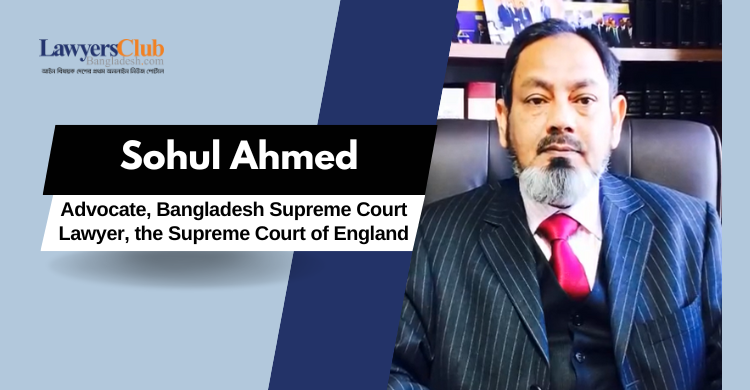Exclusion of Foreign Jurisdiction Advocates Sparks Debate Among Legal Experts

According to the Supreme Court Judges Appointment Ordinance, any interested Advocate of the Supreme Court must submit a completed specified Form (Application) attached to the Gazette. The form required among others any interested Applicant Advocate should submit their 20 Cases with copies of Judgements.
The Ordinance does not reflect the Bangladeshi Citizen Lawyers practicing in Foreign Jurisdiction (Commonwealth Countries), those who have adequate education, and experience and have the right to audience in higher courts in foreign court and they have foreign court judgments.
The Lawyer’s community observed
1. The Supreme Court of Bangladesh applied foreign judgments in several cases. In Hussein Mohammad Ershad v Bangladesh and Others (2001) 21BLD (AD) 69, the Appellate Division held that national courts should not overlook foreign judgments.
2. In the case of Mrs. Aruna Sen v Government of Bangladesh (1975) 27 DLR (HCD) 122, the court considered the judgment of Lord Atkins’s decision on Liversidge v Anderson (1942) AC 206.
3. Moreover, Article 21(b) of The Bangladesh Legal Practitioners and Bar Council Order and Rules 1972 (as amended in 2013), which allows individuals who are law graduates and have practiced as advocates in courts outside Bangladesh (notified by the Government in the official Gazette) to apply for enrolment as advocates in Bangladesh. Under this provision, Dual jurisdiction practicing in Commonwealth Countries is eligible for such recognition.
4. Furthermore, section 13 of the Code of Civil Procedure (CPC), 1908 sets the foundation of conclusiveness of foreign judgments considering some exceptions mentioned thereby. Section 14 of the CPC also stipulates that the production of any documents on foreign judgments shall be presumed as it was given by a court of competent jurisdiction unless any contrary appears.
5. The foreign judgments and precedents are required in different appellate trials and settlements such as cross-border business dealings, and family disputes, and the parties in different jurisdictions deliberate the importance of foreign statutes and judgments.
In the above analysis, it could be concluded that if foreign judgments are accepted in the courts in Bangladesh, then dual jurisdiction practicing Advocate’ should be counted and their conducting cases judgment should be accepted and The Independent Judicial Appointment Council should consider the above propositions, in which enrich the apex court in Bangladesh.

